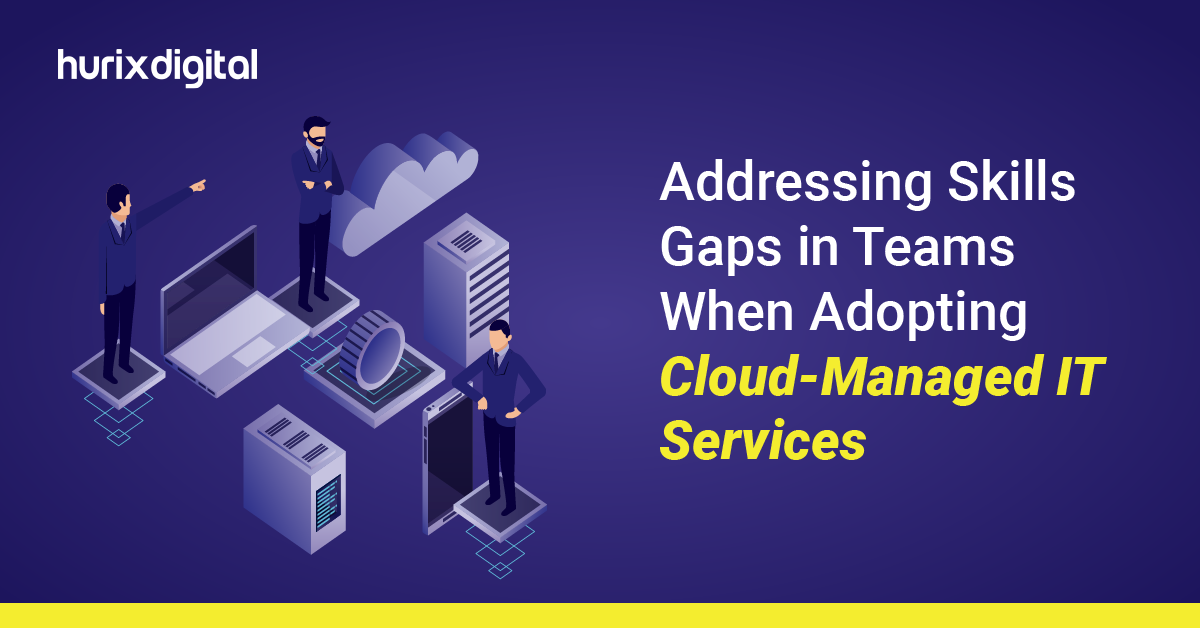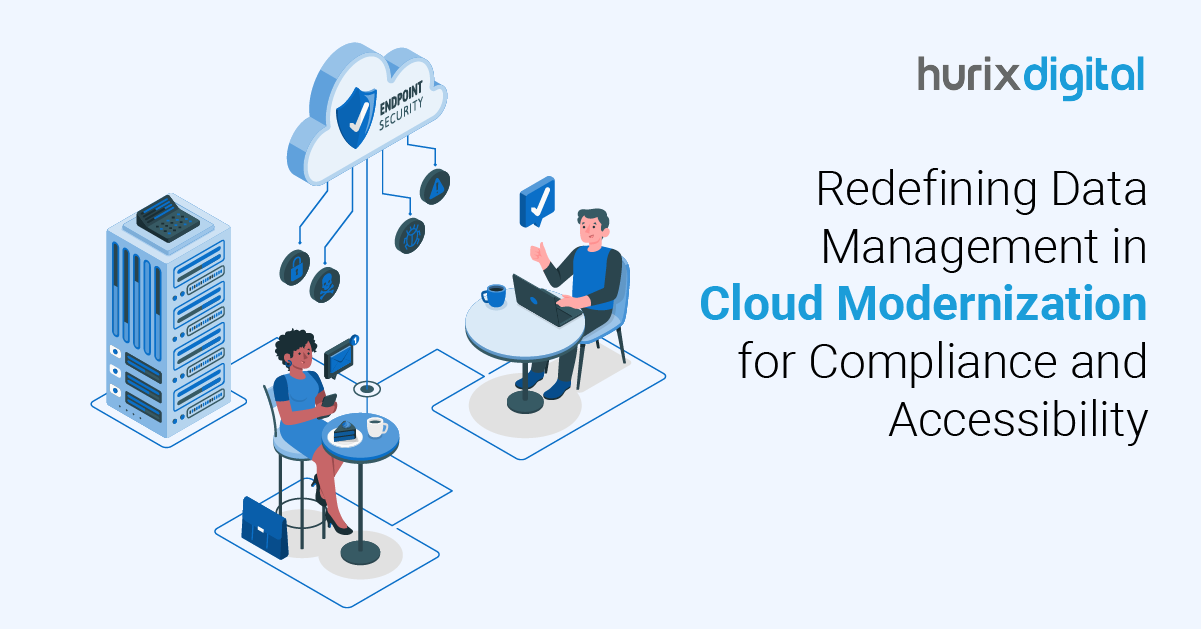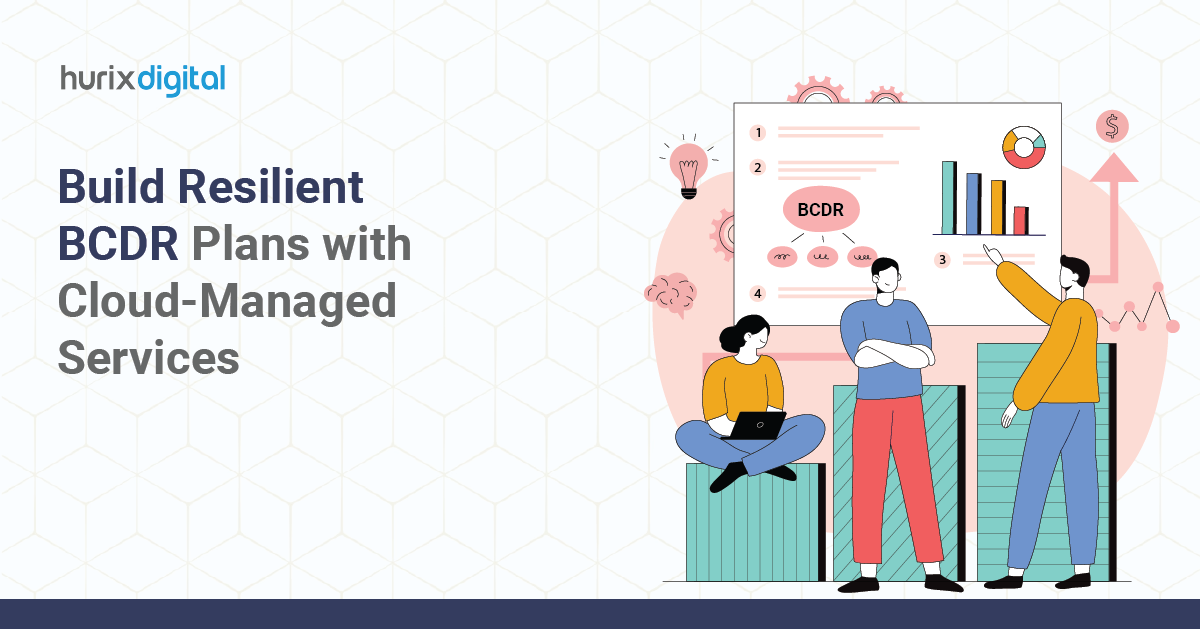
Addressing Skills Gaps in Teams When Adopting Cloud-Managed IT Services
Summary
This blog explores how cloud-managed IT services help organizations bridge the cloud computing skills gap cost-effectively by providing specialized skills, enhancing efficiency, and enabling agile responses to market changes.
In the past decade, cloud computing has revolutionized business operations, offering benefits like location-independent collaboration, enhanced data security, scalability, and cost reductions. However, many organizations face a significant challenge: the skills gap, which limits their ability to utilize cloud capabilities fully.
A recent survey found that 95% of IT decision-makers reported this gap negatively impacted their teams. This problem is likely to intensify as demand for cloud services grows.
To address this issue, organizations can turn to cloud-managed IT services, which offer a cost-effective, flexible, and scalable solution. In this blog, we’ll explore how these services can help bridge the skills divide.
Table of Contents:
- What are Cloud Managed IT Services?
- Understanding Cloud Adoption and the Skills Gap
- How to Address Skills Gaps with Cloud-Managed IT Services?
- Wrapping Up
What are Cloud Managed IT Services?
Cloud-managed IT services are structured services offered by cloud experts to organizations that find more value in outsourcing the entire operations and strategic management of the cloud to an external service provider.
This approach to cloud management has several benefits for businesses looking to optimize their cloud use. However, they may not have the internal resources and bandwidth to do so.
By partnering with a Cloud Services Provider (CSP), businesses can enjoy the following benefits:
- Reduced recruitment costs towards hiring full-time in-house cloud management teams while addressing skill gaps optimally.
- No need for investment in hardware and software related to cloud management.
- Flexibility to customize services as well as their needs. For instance, they can choose between having a public, private, hybrid, or multi-cloud environment.
- Significant cost savings due to lack of set-up and maintenance costs.
- End-to-end management of the cloud, including monitoring, maintenance, data security, and recovery.
- Scale and scale down cloud operations as per real-time business needs.
In 2023, the cloud-managed services market was valued at $107.1 billion. This market is estimated to grow by a Compound annual growth rate (CAGR) of 14% between 2024 and 2032 to $359.9 billion. With cloud adoption becoming a non-negotiable function, businesses must seriously consider cloud consulting services to help address the skills gap.
Also Read: A Comprehensive CIO’s Guide to Developing a Cloud-First Strategy
Understanding Cloud Adoption and the Skills Gap
Today, a growing number of businesses are looking at cloud migration, which demands a mix of general and advanced skills.
For instance, general cloud computing skills include:
- Expertise in cloud service platforms
- Proficiency in programming languages
- Knowledge of application programming interfaces (APIs)
- Database management
- Network management
- Development and operations (DevOps)
- Machine learning and artificial intelligence (AI)
- Cloud security protocols
- Hybrid cloud solutions
- Storage management
- Containerization
- Data and application migration and deployment
Advanced cloud computing skills encompass:
- Automation and orchestration techniques
- Linux system administration
- Capacity planning and management (flux capacity)
- Performance testing and optimization
- Metrics and analytics for cloud performance
- Cost and workload management strategies
- Cloud partnering and vendor management
- Serverless architecture design
- Infrastructure as code (IaC)
- Multi-cloud strategy implementation
- Advanced analytics and platform engineering
Given the breadth of skills required, establishing an in-house cloud computing center of excellence can be prohibitively expensive. The competition for qualified cloud talent is fierce, and businesses often require tailored solutions to tackle complex challenges, as well as personnel who can creatively leverage the cloud to solve problems at scale.
Moreover, the rapid pace of cloud technology evolution necessitates continuous learning and upskilling, further complicating talent acquisition and retention.
A superior cloud-managed IT services provider is well-equipped to deliver customized solutions that meet a business’s real-time needs, effectively addressing the skills gap. By using advanced cloud service management, AI, machine learning, and automation, these providers can offer transformative solutions that enhance efficiency, reduce costs, and drive innovation.
How to Address Skills Gaps with Cloud-Managed IT Services?
Here is a step-by-step approach to how organizations can work on cloud transformation through a sustainable solution:
1. Conduct an Audit of Cloud Computing Needs
Organizations must undertake a comprehensive audit of their understanding of cloud computing’s means and capabilities. Key technology leaders from various departments must collaborate to identify requirements and areas where cloud computing can transform efficiency, innovation, productivity, and revenues.
2. Offer Exposure Training to Cloud Computing
Technology teams may not have access to knowledge of the full potential of cloud computing in transforming services, products, and ecosystems. Offering exposure training can help teams visualize the potential to innovate, increase data security, collaborate better, and problem-solve complex market scenarios by exploring cloud computing.
3. Identify the Skill Gaps
The next step is to examine the company’s position on skills that can help turn these cloud computing needs into outcomes. Force-fitting IT professionals with generic skills may not be a sustainable solution to tackle Cloud Computing needs.
Additionally, have open conversations with team members to understand their skills and goals. This will help identify skill gaps and encourage a culture of ongoing learning, allowing the organization to better adapt to changes in cloud technology and market needs.
4. Partner with a Superior Cloud Services Provider (CSP)
Based on the findings related to the skill gap and cloud computing needs, businesses can consider a mix of in-house and cloud consulting.
Choosing the right technology expert is an important step in leveraging cloud managed services to address the skills gap. A trusted partner must have capabilities that range from proactive monitoring and preventive maintenance of technology stacks to incident & problem management and on-demand support.
5. Implement a Continuous Learning Program
Establish a continuous learning program that focuses on both formal training and informal learning opportunities. Encourage team members to pursue certifications, attend workshops, and participate in online courses related to cloud technologies. This not only helps bridge the skills gap but also keeps the team engaged and motivated to enhance their capabilities.
6. Evaluate and Adapt Strategies Regularly
Evaluate the effectiveness of your cloud transformation and skills development strategies regularly. Use metrics and feedback to assess whether the initiatives are meeting the organization’s goals.
Be willing to adapt your approach based on new cloud computing trends, changing business needs, and employee feedback to ensure ongoing relevance and success.
Also Read: 12 Emerging Trends in Cloud Managed Services: Predictions for 2025
Wrapping Up
As cloud computing plays a greater role in business success, it has become imperative for organizations to bridge the skills gap quickly and efficiently.
Availing of cloud-managed IT services offered by a superior technology expert can help businesses do so cost-effectively.
If your organization is looking to enhance its cloud computing operations, exploring the benefits of cloud-managed IT services could be a strategic move. These services not only grant access to vital skills and expertise but also streamline processes, boost efficiency, and promote a more agile response to market changes. If you’re interested in learning more, our team is here to help.

Vice President and Strategic Business Unit Head – Cloud Services
A top technology management voice on LinkedIn with 20 Years of experience in Information Technology, Cloud Services, Digital Transformation, Application Modernisation, Managed Services, IT Security Engineering and Operations Management. An avid technology Leader, Leadership Speaker, Author & Coach.







